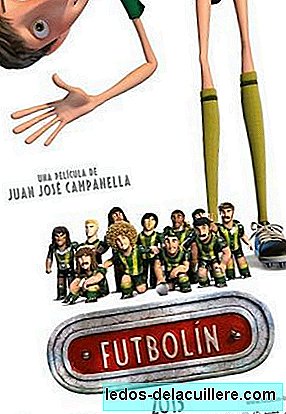
Like every week today we are going to talk about the question of the week, proposing a question to give us your answers and taking a look at what we asked you last Wednesday, assessing what your answers are.
When you are a mother (or father), your baby's presence alone acts as a magnet for acquaintances and strangers and, if they see that it is your only child, probably unconsciously, they take the opportunity to give you one or two tips, which they consider the best.
Many times they are tips that even bother you, but many times they give you advice that you never forget and always thank you. That is why this week we ask you the following:
What is the best advice they gave you when you had your baby?
From today you have a week to go answering that question in the Answers section (if you reply here in this post the message will not be taken into account) and next Wednesday we will comment on the most voted or most interesting interventions.
Last week's question
Last week we asked you: What do you think about teaching young children in English? to see what you thought about it.
The answers with the highest score in the votes were those of Gochita and Alicia Navarro.
Gochita tells us the following:
All in its fair measure, but I think that English is a pending subject in Spain, we are at the tail of the world and nowadays without English it is difficult to work and travel, just like computer science, which is already being implemented in schools because it's the future. In Spain there is a big problem with education and everything to improve is good. The school where I did EGB, they gave you English from the age of 4 and French from the age of 5, of course, at a “quiet and leisurely” level since we only had that class once a week, but it has not meant a single problem, not an abuse of information or anything like that.
And Alicia has told us:
Learning English from an early age seems very good to me, when they are younger they have more facilities to learn languages. Knowing English is increasingly important, if you do not know English, many doors close. But if "encouraging bilingualism" refers to teaching some in Spanish and others in English, it doesn't seem right. It is enough that the child goes a little behind in English so that he does not find out anything about the other subjects. Even if it goes well in English, it may not capture what is being explained to you if it is not in your language.
The rest of the interventions agree that it is necessary to bring English to children because the current level of English in Spain is quite low. Approach the language, but without neglecting the native language and without overwhelming them.
Now the new question for this week is now available and remember that you have a week to answer it Please do so in the "Answers" section and not responding to this entry. I know that I repeat myself, but if you answer here we can not take them into account for next week.












